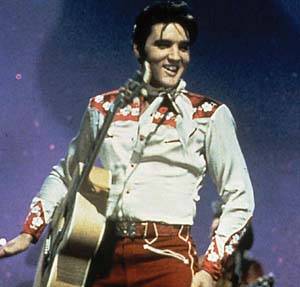I do not wish to sound callous, but isn't the current fashion for dying in public getting just a little out of hand? In recent weeks, we've had people queueing up to kill themselves at rock concerts or risk blowing their brains out on live television, while the High Court has been awash with petitioners arguing for the right to die by their own hand. Fair enough, but surely if they can get as far as the High Court, then they can get to Holland or Switzerland, where voluntary euthanasia is not a crime? And in the case of one sprightly petitioner I saw, who was wearing trainers and looking fit enough to run the London Marathon, he could simply have sprinted under a bus, thereby saving everyone a fortune in legal expenses.
This desire to die in the spotlight must not go unchallenged, which is why I've invented a new board game called Failed Celebrity Suicide, just in time for Christmas. Each player picks a minor celeb (Caroline Aherne, say, or Naomi Campbell), screams and shouts for the chance to become famous, then starts attending showbiz parties wearing dark glasses and saying "leave me alone". Then, when they land on a 'Career Lull' square, they're entitled to pick up a Free Tabloid Attention card ("call 999, wait twenty minutes, then take overdose"), which allows them to proceed to the Photo Opportunity Zone, located in a clinic for chronic attention seekers.
Of course, even the most bubbleheaded of celebrities will one day have to look the Grim Reaper in the face for real, just like the rest of us, because death is the ultimate democracy. Yet even when it comes to our last moments on this earth, there's a form of medical apartheid at work in this country that allows some people (the wellheeled and wellconnected) to enjoy their final weeks and to die with dignity, while others are left to die in agony, because they're denied sufficient access to palliative care. Think of cancerridden Dennis Potter, for example, whose was able to dose himself with as much morphine as he wished, thereby enabling him to complete two unfinished plays before he died. Indeed, one of the great TV images of the past decade was surely Potter swigging morphine from a flask while being interviewed by Melvyn Bragg, in a moving display of the sheer bloody-minded indomitability of the human spirit.
Although it has to be admitted that anyone would benefit from a swig or two of morphine when undergoing the excruciating ordeal of being interviewed by the bouffanthaired Lord of Wigton. And his viewers could do with a glug or two as well.
Using drugs to allow us a relatively painless transition from life to death ought to be one of our modern society's greatest triumphs, but many (usually the poor and inarticulate) are sadly excluded from this brave new world. Not long ago, a friend of mine was forced to watch his terminallyill mother die in fear and agony from cancer, because the doctor refused to hasten her end by prescribing the large amounts of painkillers that she was crying out for, and such instances are regrettably common. Horrific as it may seem, an estimated 25 per cent of all cancer patients die in agony, not because some doctors are innately sadistic (if they were, they'd have become dentists instead), but because the increasingly high doses of morphine needed to alleviate extreme pain eventually prove fatal. And rather than lay themselves open to a charge of assisted suicide, doctors understandably (yet unforgivably) prefer to let their patients linger on in pain and misery, with all dignity long since gone.
To be fair, Lord Joffe has for some time been trying to get a bill through parliament that would enshrine in British law the right to be helped to die. But to be fairer, the government has effectively administered euthanasia to his bill by refusing to support it, because they're unwilling to confront the religious groups that preach about the nobility of suffering (especially other people's suffering) and steadfastly condemn euthanasia. The resulting tragedy is that we're currently living in an ethical limbo where medical science can keep us going moreorless indefinitely, by burying us under a scrapyard of chrome and rubber resuscitators and reducing us to bedridden, painridden lumps of meat. But it won't let us die, and we can no longer even rely on pneumonia for centuries the old man's friend to come and alleviate our suffering.
When will our government have the courage to confront the religious leaders who view euthanasia as a mortal sin, and quietly pour millions of dollars into American PR companies, to fuel the global fight against legislative reforms? Some years ago, I heard Archbishop Foley explain the Vatican's merciful teachings on this matter. "Suffering in the last minutes of life helps us to share in Christ's Pain and helps us to imitate Christ more closely," he said, then added, "When I go to the dentist, I often think of Christ's Passion." I wonder if the callous imbecility of those remarks will occur to him, should he end his days terminally ill, doubly incontinent, vomiting, nauseous, racked with pain and covered in bed sores? Once again, I can only thank God that I'm an atheist.
Dying well is part of living well, and one day our society will surely recognise that every citizen should have the statutory right to end their life when the benefits of living no longer outweigh the miseries, and there's no cavalry in sight. But I suppose we'll only know that we've reached that promised land on the day that the President of the Voluntary Euthanasia Society begins his address to the Annual General Meeting with the words: "Tremendous news for the society. It's been our most successful year ever. So successful, indeed, that we now have no members at all."

